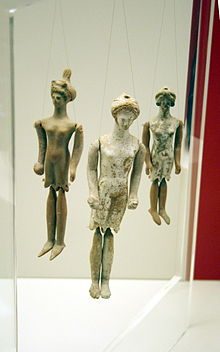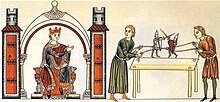Puppet Show
Puppet show for hire
Educational Puppet shows with flair and fun to entertain the kids and adults alike. Puppet shows are dramatic performance staged with puppets with the dialogue or music provided by the fun and interactive puppeteer.



Interesting facts on Puppets for hire



A puppet is an object, often resembling a human, animal or mythical figure, that is animated or manipulated by a person called a puppeteer. Puppetry is an ancient form of theatre which dates back to the 5th century BC in ancient Greece.
There are many different varieties of puppets, and they are made from a wide range of materials, depending on their form and intended use. They range from very simple in construction and operation to very complex. The puppeteer buses movements of their hands, arms, or control devices such as rods or strings to move the body, head, limbs, and in some cases the mouth and eyes of the puppet. The puppeteer often speaks in the voice of the character of the puppet, and then synchronizes the movements of the puppet’s mouth with this spoken part. The actions, gestures and spoken parts acted out by the puppeteer with the puppet are typically used in storytelling.
Two simple types of puppets are the finger puppet, which is a tiny puppet that fits onto a single finger, and the sock puppet, which is formed and operated by inserting one’s hand inside a sock, with the opening and closing of the hand simulating the movement of the puppet’s “mouth.” The sock puppet is a type of hand puppet, which is controlled using one hand that occupies the interior of the puppet and moves the puppet around. A “live-hand puppet” is similar to a hand puppet but is larger and requires two puppeteers for each puppet. A marionette is a much more complicated type of puppet that is suspended and controlled by a number of strings connected to the head, back and limbs, plus sometimes a central rod attached to a control bar held from above by the puppeteer.
A rod puppet is constructed around a central rod secured to the head. A shadow puppet is a cut-out figure held between a source of light and a translucent screen. Bunraku puppets are a type of Japanese wood-carved puppet. A ventriloquist’s dummy is a puppet, often human-shaped, operated by a ventriloquist performer’s hand; the performer produces the puppet’s voice with little or no movement of her mouth, which creates the illusion that the puppet is alive. Carnival puppets are large puppets, typically bigger than a human, designed to be part of a large spectacle or parade.
Origins Puppet show for hire
[edit]

Puppetry was practiced in ancient Greece and the oldest written records of puppetry can be found in the works of Herodotus and Xenophon, dating from the 5th century BC.[1][2] The Greek word translated as “puppet” is “νευρόσπαστος” (nevrospastos), which literally means “drawn by strings, string-pulling”,[3] from “νεῦρον” (nevron), meaning either “sinew, tendon, muscle, string”, or “wire”,[4] and “σπάω” (spaō), meaning “draw, pull”.[5][6]
Aristotle (384–322 BC) discusses puppets in his work On the Motion of Animals.
The movements of animals may be compared with those of automatic puppets, which are set going on the occasion of a tiny movement; the levers are released, and strike the twisted strings against one another.[7]
In India, puppetry was practiced from ancient times and is known by different names in different parts of the country. Excavation of clay dolls from Indus valley sites serve as an indication.[8] The art of puppetry called Bommalattam is mentioned in Tamil literature Silappadikaram, which is written around 2nd century B.C.[9]



